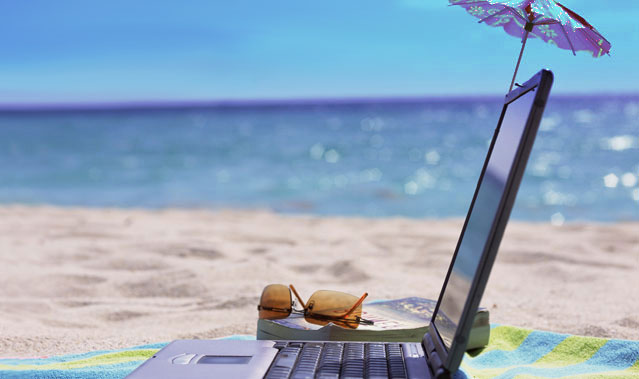With summer starting I wanted to write about the effects overheating has on hardware, specifically laptops. As you may know, Birds on a Cable has moved offices, and I’ve experienced a spell of my laptop overheating at our new location. Yes, I know, I’m supposed to be an expert and not allow such things to happen, but even us gurus are fools at times. For that very reason, I thought this would be important subject for all of us. With laptops being so convenient and hassle-free, it’s easy to forget that they need regular maintenance. We take them into any (and every) environment without hesitation, and rarely think of the damage these elements might cause.
What makes laptops overheat?
Laptops create heat during normal operation, which is why they’re equipped with internal fans. One of the most common causes of overheating is when the fan doesn’t operate normally. Sometimes this is due to dust and grime clogging up the fan, and preventing it from rotating properly. It’s also possible that the air vents are blocked, preventing air from flowing into the laptop. Something else to consider, which I didn’t know until I started researching for this blog, is the age of your laptop’s battery. Laptop batteries rely on lithium to store electricity. This chemical naturally decays over time, no matter how carefully you use it. The older the battery, the less efficient it is and the more heat it generates. Lastly, close those apps that you aren’t using because software use can also contribute to overheating.
What to do when they overheat
The first thing you should check is your hardware. Turn your laptop off and inspect the vents and your fan for any dirt, dust, or other possible causes of blockage. Also, check whether the fan itself is physically damaged, which can slow down its rotation. Sometimes overheating is caused by (*raises hand*) bad habits. Do you use your laptops in bed or on the carpet? Do you use pillows as padding? Uneven or soft surfaces often block the air vents, which leads to overheating. Always place your laptop on a hard, even surface. Turn off apps and programs that start automatically when you switch on your laptop. More often than not, you don’t need them open anyway.
What’s the best practice for keeping laptops cool?
To prevent your laptop from overheating, always make sure that there’s adequate airflow for your laptop. Better yet, invest in a cooling pad. These pads lift your laptop and add more fans to facilitate better airflow. Change your settings to “power save.” Moreover, shut down your laptop whenever you’re not using it. It’s easy to take laptops for granted because they’re billed as plug-and-play devices. However, with some extra care and attention, your devices will last much longer.
I’d like to close this with a very important tip: DO NOT BRING YOUR LAPTOP TO THE BEACH!

